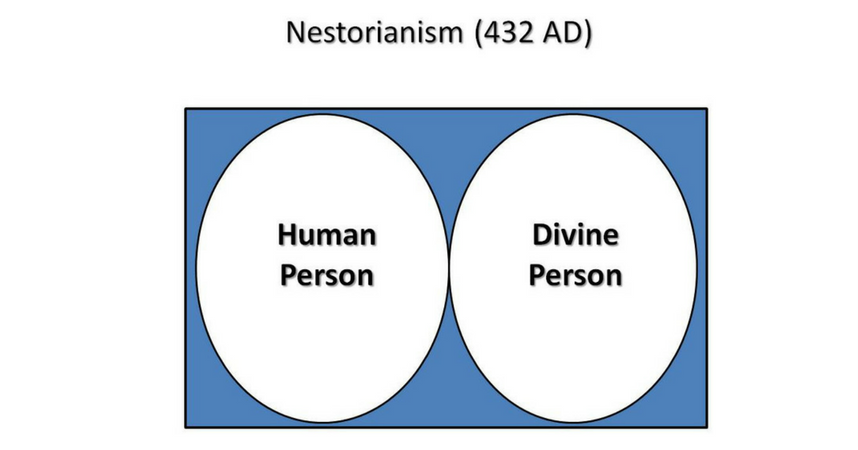Seminary is an interesting and formative time. Church history class is perhaps one of the most important times, since it demonstrates to students (to many for the first time) the boundaries for orthodox theology that have been worked out in ages past. What a better setting in which to learn you’re a heretic?
As I was working through this week’s Book of the Week, God the Son Incarnate, I was reminded of the time I realized I was a heretic. In God the Son Incarnate, Wellum supports his thesis that Jesus is God the Son Incarnate in multiple ways, one of them being the councils and creeds. As he discusses all the controversies, he eventually makes it to Nestorianism.
Nestorius wanted to preserve the full humanity of Christ. He thus argued that Christ’s divine and human natures (the Logos and the man) formed a composite union in a single person (prosopon), “thus the charge of teaching two persons in Christ” (God the Son Incarnate, 300). “Fairbairn illustrates Nestorius’s view by comparing it to a firm composed of two partners, one of whom is never actually seen but whose influence is continually felt in all the firm’s decisions. The visible partner is analogous to the man Jesus, yet the Logos is the one who stands behind him. Words such as ‘Christ,’ ‘Son,’ and ‘Lord’ ‘refer to the corporate unity created by the cooperation between the two'” (ibid., quoting Fairbairn).
My church history professor was quite good at remaining neutral when explaining issues. He thus gave a factual description of what Nestorius believed, and as I listened, I thought, “this makes sense…!” It seemed we had finally arrived at a solution to the divine/human nature/person problem! Two composite natures in one person! Yes, that’s exactly what I believe.
It only took one fateful sentence to crush my soul: “And Nestorius’s view was deemed heretical…” Yikes!
I suddenly began wondering if my soul was secure. What happened to heretics anyway? Is an error on something this nitty-gritty worthy of damnation? How did God handle all these heretics in the early church anyway?
Well I don’t suppose I’ve quite figured all that out, but I’ve figured out one thing for sure: I repudiate and denounce the false teachings of Nestorius!! It was a bit of a humorous lesson for me, but one that stuck with me. Brilliant (and feisty) theologians have gone before us to hammer out the details of so many theological issues. That doesn’t mean every single decision of the great theologians was correct, but it does mean we don’t have to reinvent the wheel.
And if we’re diligent, we can avoid ever again realizing we’re accidentally heretics.
Read more about Wellum’s book here, or preview it on Amazon. Also check out our interview with Dr. Wellum.

